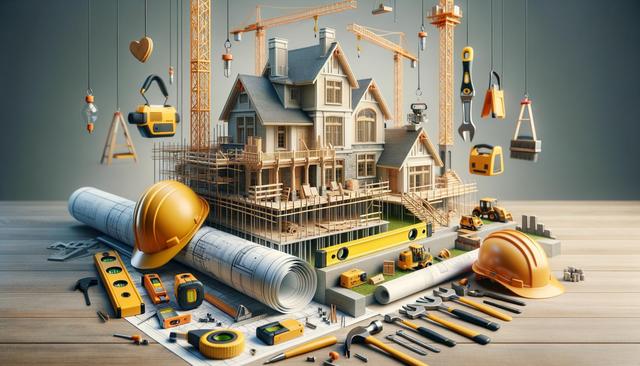Understanding the Role of Residential Building Contractors
Residential building contractors play a central role in home construction projects. They coordinate all aspects of the building process, from acquiring permits to managing subcontractors and sourcing materials. These professionals ensure that your custom home design is brought to life while adhering to local regulations, timelines, and budget constraints.
Aside from managing labor and materials, contractors also oversee quality control and safety standards. A good contractor will act as your point of contact throughout the project, ensuring consistent communication and transparency. This makes it easier to monitor progress and make informed decisions as the project evolves. They also help interpret architectural plans and ensure that all construction work aligns with design specifications and zoning laws.
When considering a contractor, it’s important to evaluate their experience with similar residential projects. For example, building a single-family home is very different from renovating a multi-unit property. Opting for a contractor who has handled projects that match your scope and complexity can lead to better outcomes and fewer delays.
What to Look for When Hiring a Contractor
With so many options available, choosing the right residential general contractor can feel overwhelming. However, focusing on a few key criteria can help you make a more informed choice. Start by checking their qualifications:
- Licensing and insurance
- Track record and portfolio
- References and client testimonials
- Communication and project management skills
A licensed contractor is not only legally compliant but also demonstrates a level of professionalism and accountability. Insurance is also essential, as it protects both you and the contractor from potential liabilities during construction. Reviewing previous projects gives insight into their style, quality, and capabilities.
Clear communication is another critical factor. The contractor should be able to explain technical aspects in an understandable way and respond promptly to your inquiries. This ensures a collaborative relationship and reduces the likelihood of misunderstandings.
Setting a Realistic Budget and Timeline
One of the most important aspects of any residential construction project is establishing a realistic budget and timeline. A reliable building contractor will help you understand the full scope of costs, from materials and labor to permits and contingencies. They should provide a detailed and itemized estimate that outlines all expected expenses.
While it’s tempting to go with the lowest bid, that can sometimes lead to cost overruns or subpar work. Instead, look for value and transparency. A dependable contractor will keep you informed about potential extra costs upfront and offer guidance on where you can save without compromising quality.
Additionally, timelines are just as important as budgets. Experienced home construction contractors will develop a project schedule that includes key milestones and completion dates. This helps you plan your move-in date and track progress effectively. Delays can occur due to weather, supply issues, or design changes, but a good contractor will communicate these issues early and suggest practical solutions.
Communication and Contracts Matter
Effective communication and clear contracts are essential to building a successful partnership with your contractor. Before any work begins, ensure that all expectations, responsibilities, and deliverables are outlined in a written agreement. This should include:
- Project timeline and phases
- Payment schedule
- Scope of work
- Materials and brands (if specified)
- Warranty and dispute resolution process
Having everything in writing protects both parties and minimizes the risk of misunderstandings. A well-drafted contract is a sign of professionalism and provides a reference point if any issues arise during the construction process.
Open and ongoing communication also plays a key role. Regular updates, site visits, and progress reports help you stay informed and involved. Some building professionals use project management software or client portals to keep everything transparent and organized.
Evaluating Long-Term Relationships and Aftercare
Residential building contractors who offer post-construction support and warranty services demonstrate a commitment to long-term client satisfaction. Building a home is a significant investment, and having access to your contractor after the project is completed can be incredibly valuable.
Ask potential contractors about their warranty terms and how they handle follow-up visits or necessary adjustments. This can include issues like settling cracks, appliance installation, or small finish updates. A contractor who is willing to stand by their work adds peace of mind and builds trust.
Moreover, experienced contractors often have a strong network of subcontractors, suppliers, and service providers. This can benefit you long after your home is completed, whether for future renovations or routine maintenance. Establishing a long-term relationship with a reliable contractor can make future projects more efficient and less stressful.
Conclusion: Making a Confident Choice
Choosing the right residential building contractor is a foundational step in any successful home construction project. By focusing on experience, communication, transparency, and long-term support, you can significantly improve your chances of a smooth and satisfying building process. Whether you’re planning a new build or a major renovation, the right contractor will help bring your vision to life while ensuring quality, safety, and efficiency every step of the way.






